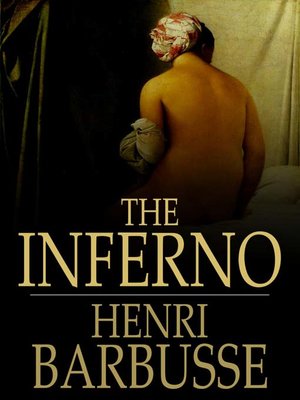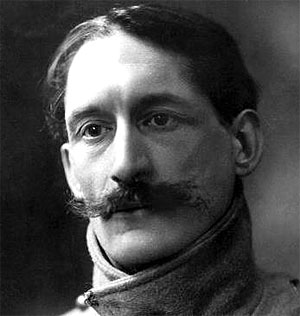Scan barcode
A review by glenncolerussell
The Inferno (Hell) by Henri Barbusse
5.0

The Inferno (alternate title - Hell) by Henri Barbusse makes for one strange reading experience. We have our first-person narrator, a thirty-year-old gent who takes up residence in a Paris rooming house only to discover a crack in the wall where he can remain undetected as he observes the happenings in the next room.
Then there’s the dialogue and action of the various occupants of that next room who come and go, all filtered through the alembic of the voyeuristic narrator. And what intriguing characters they are, acting out the drama of their lives under the voyeur’s watchful eye. Among others, two preadolescent fledgling lovers; a sentimental romantic and her tall mustachioed, stiff, jaundiced heartthrob; a pregnant young woman tending to a dying old poet who is her lover.
What exactly is it about being a voyeur? We all have had the legitimate experience of being watchers of films and plays and readers of books full to the brim with comedy and drama of character's lives but what of observing real people in real situations?
Yet to be a viewer unbeknownst to those being viewed living their "real" lives is something else again, quite different from books or movies. The enchantment of this short novel provides us an opportunity to join the young voyeur as he peeps through a crack into the next room.
Does reading a story told by voyeur make us voyeurs? Certainly not, but then again, there is something about partaking in the voyeur’s peeping. By way of example, here is a snatch of dialogue from the next room:
“I love you so much,” he said simply.
“Ah,” she answered, “you will not die!”
“Think of all you have done for me!” she exclaimed, clasping her hands and bending her magnificent body toward him, as if prostrating herself before him.
Then the voyeur/narrator observes: You could tell that they were speaking open-heartedly. What a good thing it is to be frank and speak without reticence, without the shame and guilt of not knowing what one is saying and for each to go straight to the other. It is almost a miracle.
Thus, we as readers are given two separate dramas: the participants in the next room in their various combinations and also the life of the young voyeur - his emotional response, his philosophical reflections on his own life and on the lives of those he observes.
And perhaps that’s not such a bad thing after all, the author providing us with an alternate rhythm of observing the next room and the mind of the voyeur, squeezing the novel as art form with such a unique twist. Ah, the French! Toward the end of his stay at the rooming house, we read:
"I wanted to know the secret of life. I had seen men, groups, deeds, faces. In the twilight I had seen the tremulous eyes of beings as deep as wells. I had seen the mouth that said in a burst of glory, "I am more sensitive than others." I had seen the struggle to love and make one's self understood, the refusal of two persons in conversation to give themselves to each other, the coming together of two lovers, the lovers with an infectious smile, who are lovers in name only, who bury themselves in kisses, who press wound to wound to cure themselves, between whom there is really no attachment, and who, in spite of their ecstasy deriving light from shadow, are strangers as much as the sun and mood are strangers."

French author Henri Barbusse, 1873-1935
“I believe that around us there is only one word on all sides, one immense word which reveals our solitude and extinguishes our radiance: Nothing! I believe that that word does not point to our insignificance or our unhappiness, but on the contrary to our fulfillment and our divinity, since everything is in ourselves.”
― Henri Barbusse, The Inferno